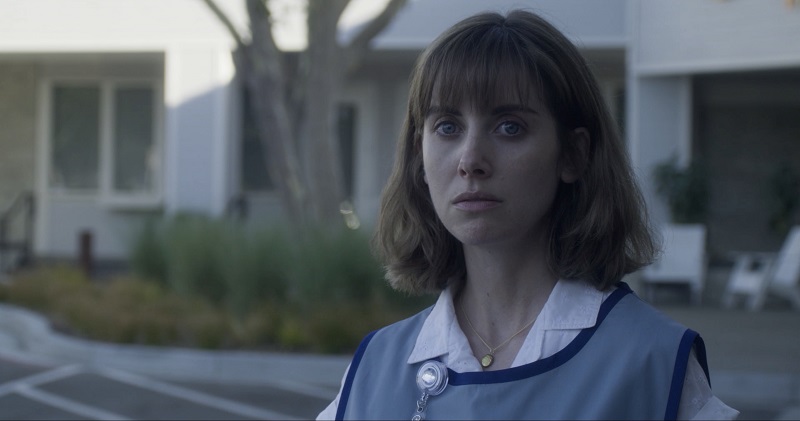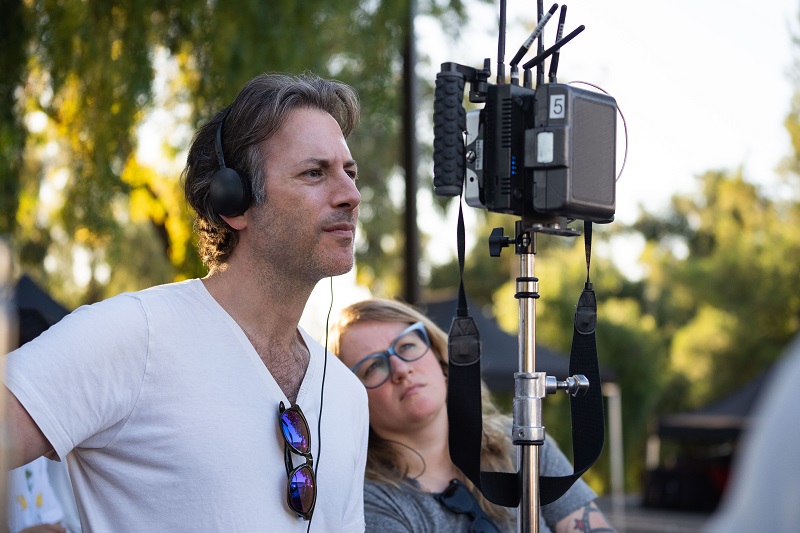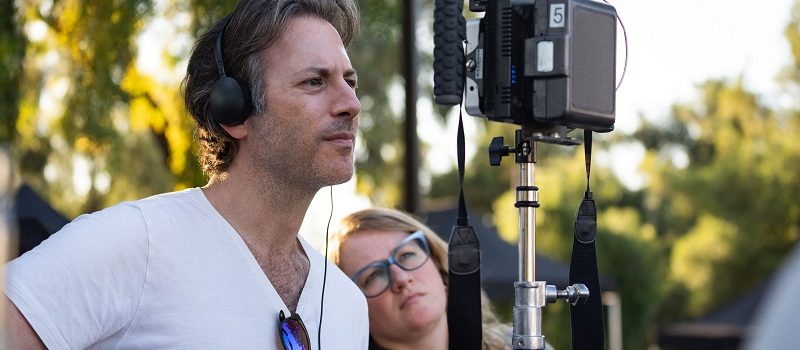With his past films including love stories about zombies in Life After Death and the medieval dark comedy The Little Hours, it’s not shocking that director Jeff Baena’s fourth film, Horse Girl, is just as abstract as it is compelling.

Baena uses an unreliable narrator to present a character study on an introverted, anti-social woman who is predisposed to mental illness in this psychological thriller produced by the Duplass brothers, Jay and Mark.
Horse Girl follows Sarah (Alison Brie) a socially isolated arts and crafts employee, who leads a relatively mediocre and complacent life, until a series of strange and surreal dreams start to make her question that simple reality. Brie, who also co-wrote the screenplay, is perfectly cast as the lonely character that’s struggling with deciphering between her delusions and what is real. Can she trust her own mind?
Baena uses his tried-and-true, and extremely effective, storytelling method of following Sarah’s descent as she seeks the truth to her own distorted reality, no matter how abstract it may be.
Similar to the story build-up style used in Joshy, Baena allows the main character to provide their own exposition by following them in their day-to-day lives without spoon-feeding the audience any sorts of background. That is a testament to his exquisite storytelling skills and incredible ability to portray the complexities of the human experience on-screen.
At a recent press day, The Movie Mensch spoke with Baena about Horse Girl, mental illness and his top-tier storytelling skills … and we got deep!
On his tremendous ability to build up a story, Baena claimed that he’s “allergic to exposition.”
“I can’t stand being told (a story), so I think that’s just my way of not having to weigh too much into exposition. I like to give people more credit,” he explained.
On being able to use an unreliable narrator to tell the story, Baena said that he prefers to tell stories from “a more subjective perspective.”
He went on to point out that he feels that all narrators are unreliable. “I think every narrator is unreliable because we are all fallible, we’re human beings.”
“It’s all based on experience and memories. Whatever appears to us is not objective. It’s processed through our brains,” he explained, alluding to phenomenology and the idea that in a post-modern world, perception is reality, because reality is ultimately subjective due to our own individual experiences and memories.

Baena admitted that he wanted to show the audience that the experiences Sarah is having almost works “like a pressure cooker” to trigger whatever predisposed mental illness to the surface.
The writer/director also said that his main objective for telling the tale was that he wanted to remind audiences to “reserve judgement” for those who do experience mental illness that they themselves may not fully understand.
“Even if something seems impossible to you, it could be real to them. I think you have to have a little bit of faith or trust in that person. A sense of reality. I mean, who are we to judge?”
Baena then went on to suggest that hopefully the film would motivate people to be a little more compassionate, understanding, forgiving and maybe even “put ourselves in their shoes and at least listen to them.”
Horse Girl starts streaming on Netflix February 7 and it’s arguably Baena’s best and most socially relevant movie yet.

